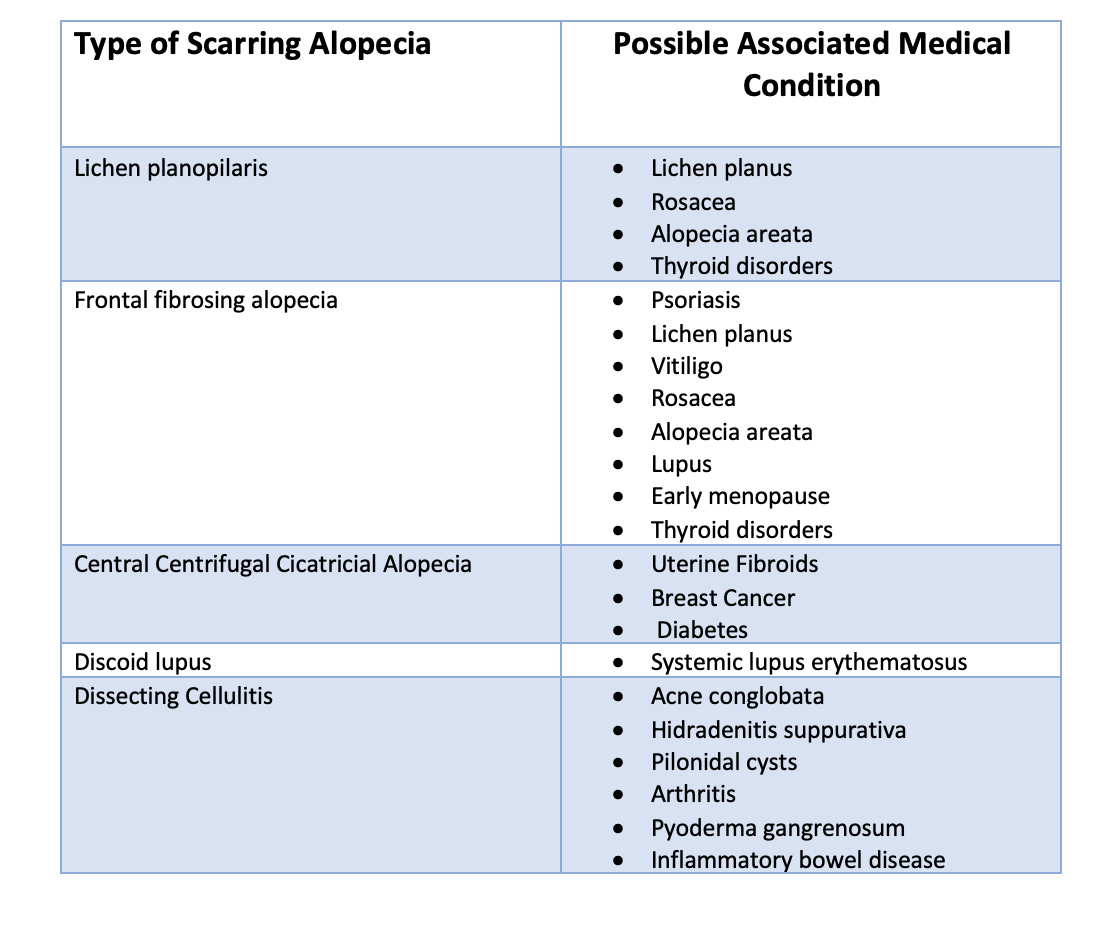National Scarring Alopecia Awareness Month (Day 9, Fact 9): Some Types of Scarring Alopecia May Be Association with a Small Increased Risk of Certain Medical Conditions
A Slightly Increased Risk of Certain Medical Conditions Accompanies Some Scarring Alopecias
Scarring alopecia are complex conditions for which the exact cause has not been fully elucidated. It is believed that a combination of genetic and environmental factors may contribute to the development of scarring alopecia.
Some scarring alopecias are known to be associated with a slightly increased risk of developing other medical conditions. These medical conditions may develop before the scarring alopecia is diagnosed or may develop after the scarring alopecia is diagnosed. In other cases, the second condition may develop at exactly the same time as the scarring alopecia.
For example, patients with lichen planopilaris (LPP) are at increased risk of developing lichen planus, rosacea, alopecia areata and thyroid disorders compared to those individuals who do not have lichen planopilaris.
Other diseases association are found in the table for patients with frontal fibrosing alopecia, discoid lupus, central centrifugal cicatricial alopecia and dissecting cellulitis.
The Importance of Understanding Disease Associations.
It is very important to understand these possible associations. First, it is important to ask about the various possible medical conditions when speaking with a patient in order to determine if these conditions may be present now. Second, for some scarring hair loss conditions ordering various screening blood tests may be appropriate. For example, when meeting with patients with lichen planopilaris and frontal fibrosing alopecia (FFA), I typically order a screening TSH blood test in order to check the status and function of the thyroid gland. In discoid lupus, I typically order an ANA to evaluate for possible associated systemic lupus erythematosus (SLE).
This article was written by Dr. Jeff Donovan, a Canadian and US board certified dermatologist specializing exclusively in hair loss.

